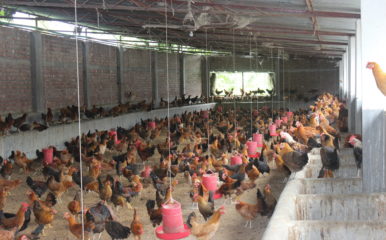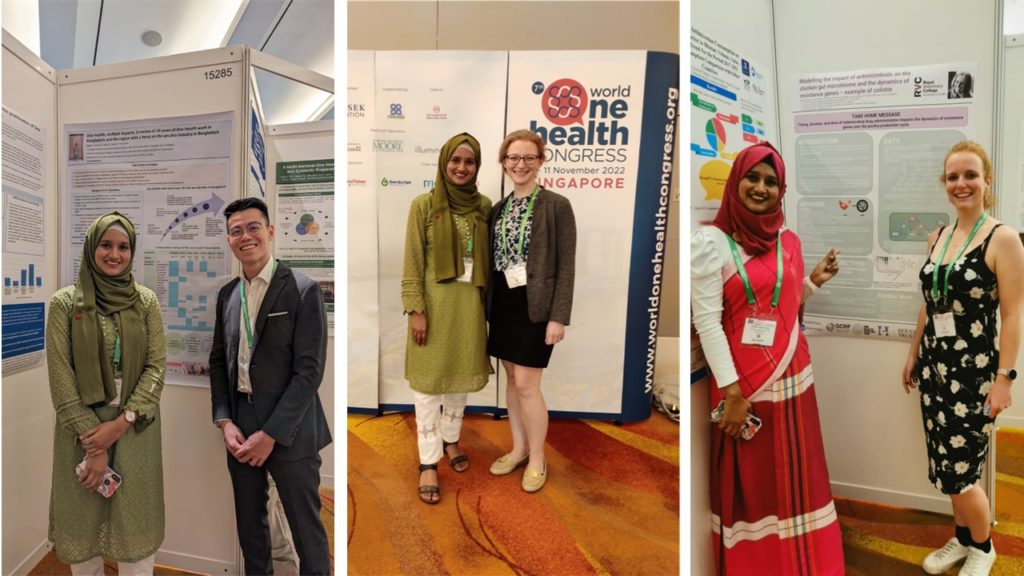
World One Health Congress: reflections on inclusivity
Published on 06/12/2022

Kane Reinholdtsen/Unsplash
The 7th World One Health Congress was held in Singapore. More than 1,400 in-person and 1,000 virtual attendees from academia, civil society, government, the private sector and multilateral organisations participated – including a good representation from the One Health Poultry Hub. Since I’m passionate about One Health, I was pleased to be among them.

The Congress was a success. It brought to our attention once again the importance of identifying areas in which we share common ground and can become better acquainted with one another so that, in times of need, we can assist one another and be a source of strength while fighting or preparing for what lies ahead.
It brought together on this one platform renowned, high-level speakers from a variety of disciplines, including Professor Dirk Pfeiffer and Professor Robyn Alders from the Hub. It saw a session dedicated to the quadripartite movement, and there were also some wonderful presentations from the EcoHealth Alliance, which has worked relentlessly on the prevention of zoonotic infectious diseases across the world.
One Health is all about working together and coordinating efforts, and during this Congress I attended several sessions in which topics such as the ecology and climate change, integrated surveillance and the social contexts of One Health were discussed alongside advocacy, disease management and risk factors. Antimicrobial resistance (AMR), a prospective pandemic, was mentioned in every important conversation about human and animal health and was another top concern.
Overall, some of the sessions, and the experience of making connections with new people and learning about their commitment to the work of One Health, will stay with me forever.
An inclusive movement?
However, although an inclusive movement and the significance of preventative action were topics for discussion, environmental health, agricultural science and anthropological research were not given as much attention as other fields of study. If we fail to find the right approach to coordinate or connect everything, the inclusion of multiple disciplines under a single platform will not contribute anything new of value to the One Health movement.
Further, what we require is neither the scientific publications or the complicated findings that are inaccessible to the general public. Successes at individual or project level cannot properly reflect the genuine functionality of One Health. We need to put One Health into practice, which cannot be done with lucrative research works, amazing surveillance outlines or molecular level studies. But there was not enough time for these types of arguments or conversations.
At this Congress, the speakers discussed how important it is for One Health to be involved at the advocacy and policy level. Yet no one spoke on behalf of young One Health enthusiasts and the community of multidisciplinary students who might one day be the responsible individuals for this approach. When I asked about this during the quadripartite session, I was unable to get a satisfactory response from the speakers – for me, at least.
Scientists from countries with low and middle incomes were not given sufficient floor space either. If One Health is to have a beneficial impact, distinctions in culture and gender too among programme participants must be acknowledged and included. In particular, the ratio of female to male figures in the panel discussions was disappointing.
Another disappointment was the abstract session. This was entirely dedicated to the oral presenters, while the poster presentations were largely ignored during the entire five days!
The Covid-19 pandemic experience showed us the importance of collaboration to overcome seemingly uncontrollable circumstances. We have adapted to the new normal, but we are also cognisant of what it means to be a part of the new normal.
Therefore, if we wish to incorporate One Health into our way of life, we need to create and implement a comprehensive plan for integrating communication, science and research, and bring together multiple perspectives on to a single stage. This includes at international conferences such as this one.


